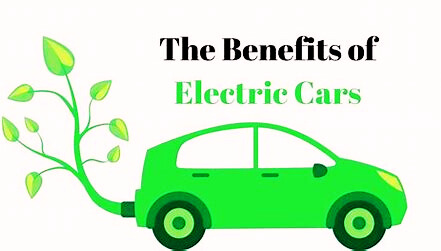Introduction:
As the world shifts toward more sustainable energy solutions, electric cars (EVs) are becoming increasingly popular. Consumers are growing more aware of the environmental impact of their transportation choices, and governments are introducing incentives to encourage the use of electric vehicles.
But beyond the obvious appeal of reducing carbon emissions, what are the real benefits of electric cars? In this post, we’ll dive deep into the key advantages of electric vehicles, both for the individual and for society as a whole.
1. Environmental Benefits
One of the primary reasons people are making the switch to electric cars is the significant environmental advantages they offer. Traditional gasoline-powered cars emit large amounts of greenhouse gases (GHGs), which contribute to climate change and air pollution. Electric vehicles, on the other hand, produce zero tailpipe emissions.
a. Reduction in Greenhouse Gas Emissions
Transportation accounts for a significant portion of global CO2 emissions. By switching to electric vehicles, we can dramatically reduce our carbon footprint. Even when taking into account the electricity required to charge EVs, they still produce fewer emissions than gasoline or diesel-powered vehicles, especially in regions where renewable energy is part of the grid.
b. Lower Air Pollution
Air pollution is a serious health concern, particularly in urban areas. Combustion engines release pollutants like nitrogen oxides (NOx) and particulate matter (PM), which can lead to respiratory problems, heart disease, and other health issues. Since electric cars don’t have exhaust systems, they don’t emit these harmful substances, contributing to cleaner, healthier air.
c. Less Noise Pollution
Electric cars are much quieter than conventional vehicles. This is because they don’t have the loud internal combustion engines (ICEs) that make noise when accelerating or idling. Quieter streets, especially in urban settings, can lead to less stress and a better quality of life for residents.
2. Lower Operating Costs
Beyond environmental benefits, electric cars offer substantial savings in terms of operating costs. Though the initial purchase price of an electric vehicle may be higher than that of a traditional car, the long-term savings can be significant.
a. Reduced Fuel Costs
The cost of electricity is generally lower than that of gasoline or diesel. Charging an electric car can be done at home overnight, and many public charging stations offer competitive rates. For example, a typical EV might cost only $0.04 to $0.07 per mile to operate, while gasoline vehicles may cost $0.10 to $0.15 per mile, depending on gas prices and fuel efficiency.
b. Lower Maintenance Costs
Electric vehicles have fewer moving parts than gasoline-powered cars. They don’t have oil that needs changing, transmission systems, spark plugs, or fuel injectors, all of which require regular maintenance in conventional cars. As a result, the cost of maintaining an EV is typically lower. The regenerative braking systems in most EVs also help reduce brake wear, further lowering maintenance costs.
c. Longer Lifespan of Batteries
Modern electric car batteries are designed to last a long time. With advances in battery technology, many electric cars can now travel hundreds of thousands of miles before needing a battery replacement. Most EV manufacturers offer warranties of up to 8 years or 100,000 miles for their batteries, giving consumers peace of mind.
3. Government Incentives
To encourage the adoption of electric vehicles, many governments offer a variety of incentives that can significantly lower the overall cost of purchasing and owning an electric car. These incentives can vary by country and region but often include:
a. Tax Credits and Rebates
In many countries, buyers of electric vehicles can benefit from tax credits or rebates, which reduce the effective purchase price of the vehicle. For example, in the United States, the federal government offers a tax credit of up to $7,500 for qualifying electric cars. Some states and local governments offer additional rebates, making the switch to electric even more affordable.
b. Reduced Registration Fees and Tolls
Some regions offer reduced registration fees or waive them altogether for electric vehicles. EV drivers might also benefit from discounts or exemptions on toll roads, bridges, or congestion charges in major cities. This can translate to significant savings over the life of the vehicle, especially for frequent drivers.
c. Access to HOV Lanes
In many cities, electric vehicle drivers are allowed to use high-occupancy vehicle (HOV) lanes, even when driving alone. This can save considerable time during peak commuting hours, making EVs an attractive option for people who frequently drive in congested areas.
4. Enhanced Driving Experience
Electric vehicles offer a smoother, quieter, and more enjoyable driving experience compared to traditional gasoline-powered cars.
a. Instant Torque and Smooth Acceleration
Electric motors provide instant torque, meaning that electric vehicles can accelerate quickly and smoothly. This gives the driver a more responsive and enjoyable driving experience, especially in stop-and-go traffic.
b. Quiet Operation
As mentioned earlier, electric cars are much quieter than their gasoline counterparts. The absence of engine noise provides a more peaceful driving experience, especially on long trips. Many drivers also appreciate the absence of vibration, which contributes to a smoother ride.
c. Advanced Technology Features
Electric vehicles are often equipped with the latest technology, including autonomous driving features, advanced infotainment systems, and enhanced safety features. Since EV manufacturers tend to focus on innovation, electric cars are frequently at the forefront of the latest automotive advancements.
5. Energy Independence and Security
One of the lesser-discussed benefits of electric vehicles is the role they play in reducing our reliance on fossil fuels, particularly oil. Many countries import large quantities of oil to fuel their transportation sectors. This reliance on foreign oil can pose economic and security risks.
a. Reduced Dependence on Oil
By transitioning to electric vehicles, countries can reduce their dependence on oil, much of which comes from politically unstable regions. Electricity can be generated from a variety of sources, including renewable energy, making EVs a more sustainable and secure option for the future.
b. Renewable Energy Integration
As the grid becomes greener with more solar, wind, and hydropower, the environmental benefits of electric cars will continue to increase. Unlike gasoline, which is a finite resource, renewable energy sources are abundant and can be harnessed locally. By driving an electric vehicle, you are helping to promote the use of cleaner, renewable energy sources.
6. Support for Innovation and Job Creation
The rise of electric vehicles has sparked a wave of innovation in the automotive and energy sectors. From advances in battery technology to the development of new charging infrastructure, the electric vehicle industry is driving significant technological progress.
a. Battery Technology Advancements
Battery technology is at the heart of electric vehicles, and the demand for better, more efficient batteries is pushing the boundaries of innovation. This has resulted in improvements not only in EV performance but also in the development of batteries for other applications, such as renewable energy storage.
b. New Jobs and Industries
The shift to electric vehicles is creating new jobs in industries ranging from battery manufacturing to the development of charging infrastructure. The rise of EVs has also led to the growth of new businesses focused on electric vehicle maintenance, software development, and energy management. This wave of innovation is helping to drive economic growth in many regions.
Conclusion
The benefits of electric cars are clear: they help reduce greenhouse gas emissions, lower operating costs, and offer a better driving experience, all while supporting energy independence and technological innovation.
While the initial cost of purchasing an electric vehicle may be higher, the long-term savings and environmental benefits make them a compelling choice for the future of transportation.
As governments, businesses, and individuals continue to invest in sustainable technologies, the transition to electric vehicles is inevitable. Whether you’re looking to save money on fuel, reduce your carbon footprint, or simply enjoy a quieter and smoother ride, an electric car could be the perfect choice for you.
By embracing electric vehicles, we can take a significant step toward a cleaner, more sustainable future.








